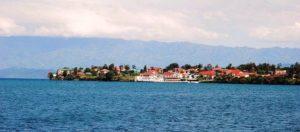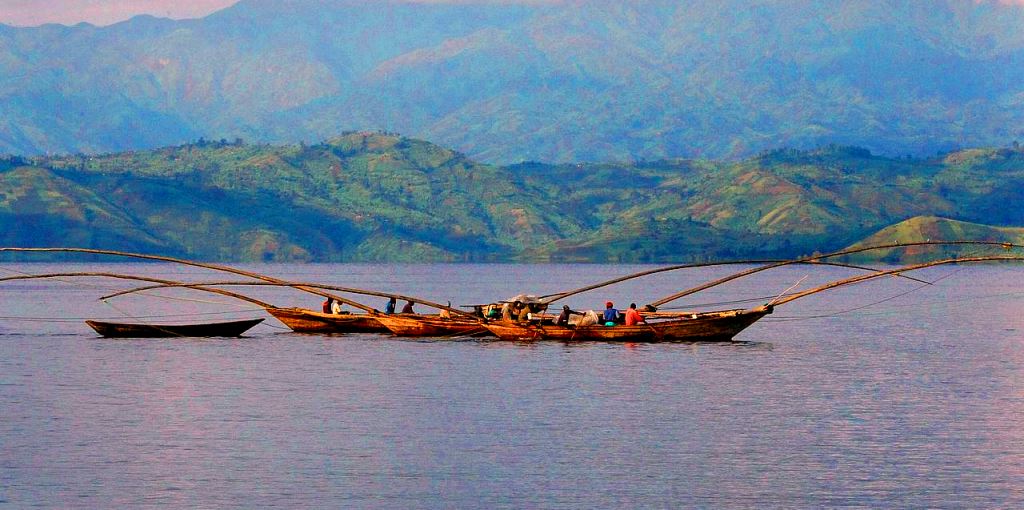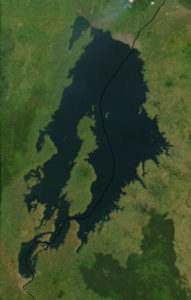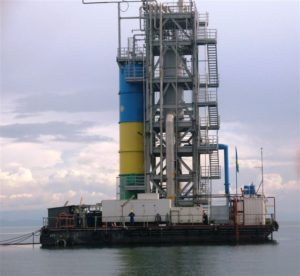On February 5, 2019, the government of Rwanda said it had signed a $400 million, seven-year deal to produce bottled gas from Lake Kivu, which emits such dense clouds of methane it is known as one of Africa’s “Killer Lakes.”

Lake Kivu with Goma, DRC in background.
Photo by Sascha Grabow.
The project by Gasmeth Energy, owned by U.S. and Nigerian businessmen and Rwandans, would suck gas from the lake’s deep floor and bottle it for use as fuel.
This will help prevent toxic gas bubbling to the surface, reducing danger to local residents.
Methane is a powerful greenhouse gas, so this move will also help restore the global climate.
And, as if that isn’t enough, the availability of methane for power will reduce local reliance on wood and charcoal, which will help conserve local forests, and set the stage for their restoration.Rwanda already has two companies that extract gas from Lake Kivu to power electricity plants.
Clare Akamanzi, chief executive of the Rwanda Development Board, told Reuters that the bottled methane would be used by both households and tea factories throughout the East African nation of 12 million people.
“We expect to have affordable gas which is environmentally friendly,” she said.
“We expect that people can use gas instead of charcoal, the same with industries like tea factories instead of using firewood, they use gas. It’s part of our green agenda,” she added.
The deep waters of Lake Kivu, which lies in the volcanic region on Rwanda’s border with the Democratic Republic of Congo, emit such dense clouds of methane that scientists fear they might erupt, killing those living along its shore.
Eruptions from much smaller methane-emitting lakes in Cameroon, one causing a toxic cloud and another sparking an explosion, killed a total of nearly 1,800 people. The shores of Lake Kivu are much more densely populated.
Gasmeth Energy said it would finance, build and maintain a gas extraction, processing and compression plant to sell methane domestically and abroad.
The bottled gas should be on sale within two years, Akamanzi said, adding that prices had yet to be determined.
Featured photo by Steve Evans(via Wikipedia) shows fishing boats on Lake Kivu in 2009.
This Reuters article—edited by Katharine Houreld and Edmund Blair—originally appeared on Trust, the news site of the Thomson Reuters Foundation. Reprinted here with permission.



